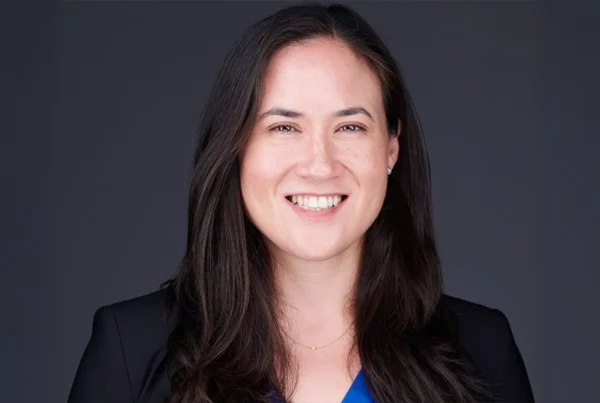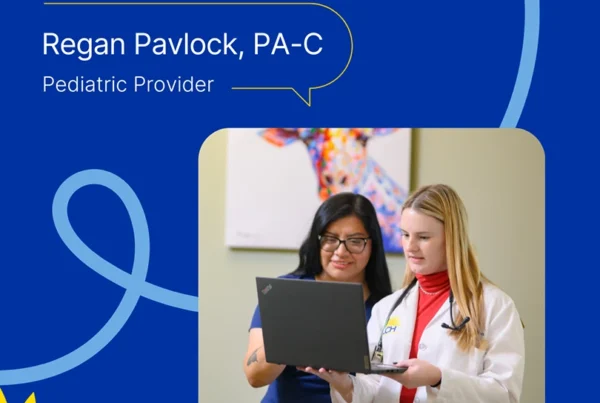Volunteer Goes Above and Beyond to Expedite Referral for 3-Year-Old Child
When a three-year-old child in Washington developed recurring high fevers with no clear cause, the impact was immediate and exhausting for the entire family. Their fevers lasted three to six days at a time and often returned multiple times a week. The child missed more than two months of daycare, and the parents missed over 60 days of work while seeking answers. Despite repeated visits to primary care, urgent care, and the emergency room, the underlying cause remained unclear.
Lab results showed elevated inflammatory markers—signs of something more serious—yet the family was told that the wait to see a pediatric rheumatologist would take months.
At that point, an eConsult request through MAVEN Project reached Dr. Lawrence Zemel, a pediatric rheumatologist based in Connecticut.
Through an eConsult with Erin Godfrey, Advanced Registered Nurse Practitioner in Washington and the clinician caring for the child, Dr. Zemel carefully reviewed the child’s history, labs, and symptoms. He noted concerning signs, including elevated sedimentation rates and recurring fevers severe enough to disrupt daily life. Recognizing the urgency, Dr. Zemel not only offered diagnostic insight but also personally contacted colleagues at Seattle Children’s Hospital to expedite the referral. Thanks to this collaboration, the family gained access to specialty care that otherwise would have taken months.
“If these kids are missing a lot of school—or in this case daycare—it usually indicates there is a significant illness going on,” Dr. Zemel explained. “That needs to be dealt with right away, not in three months.”
Rheumatic diseases are notoriously complex, and pediatric cases can be especially challenging to diagnose. Yet access to pediatric rheumatologists in the United States is severely limited. According to the American College of Rheumatology, there are only about 350 board-certified pediatric rheumatologists nationwide—roughly one for every 250,000 children. Most are concentrated in academic medical centers, leaving families in smaller or rural communities with long wait times and travel distances.
Godfrey, who works at a Federally Qualified Health Center, said this case illustrates how MAVEN Project helps bridge critical care gaps.
“I refer a lot of patients outside our city, and they might have to travel an hour or more to get there. Many patients can’t afford the gas money, so the fact that specialists can give recommendations remotely is really helpful,” Godfrey said.
This scarcity of specialists is exactly where MAVEN Project shows its strength. By connecting frontline providers in underserved areas with expert volunteers like Dr. Zemel, MAVEN bridges gaps in access and ensures children receive timely, life-changing care.
Godfrey, who began using MAVEN Project in 2023, said it has quickly become a vital part of her clinical toolkit.
“Personally, it makes me feel more confident in ordering labs and giving recommendations for cases that feel out of scope for family practice or pediatrics,” she said. “It also helps to reduce unnecessary referrals because I’m able to get expert input remotely. This can save the patient time and unnecessary appointments.”
For Dr. Zemel, volunteering with MAVEN Project is both meaningful and intellectually rewarding.
“[As a pediatric rheumatologist], we typically see children who may have seen two or three different physicians before us—a pediatrician, an orthopedist, perhaps a neurologist or infectious disease specialist—and finally they’d show up to see us, and we’d have to figure out the puzzle,” he shared. “It’s detective work, and that’s really a lot of fun. Pediatric rheumatology is a small field, and there aren’t specialists all over the place. Being able to use my experience to help providers and patients in places that don’t have ready access—it’s an honor to participate.”
In this case, MAVEN’s impact went beyond medical advice. By personally advocating for the patient and expediting the referral, Dr. Zemel drastically shortened wait times for a family already stretched thin by illness.
Stories like this highlight the unique value MAVEN Project brings to communities across the country. With 246 medical volunteers representing 69 specialties and subspecialties, MAVEN provides safety-net clinics with access to expertise that can transform care for patients who might otherwise fall through the cracks.
For families like this one, MAVEN means fewer months of uncertainty, fewer missed days of work and school, and—most importantly—timely, life-changing care for a child in need.






